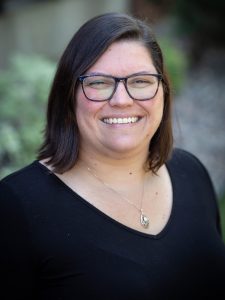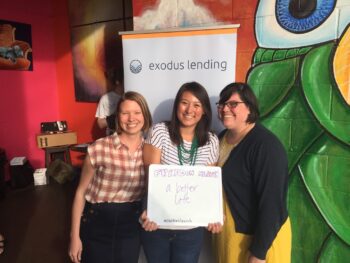 By Meghan Olsen Biebighauser
By Meghan Olsen Biebighauser
This week my spouse and I discovered that the app that our family uses for tracking our kids’ money was being discontinued in the U.S. It’s a real loss because this app allowed us to a.) automatically dole out weekly allowance without having to remember or have cash in the house, b.) help them set savings goals, and c.) earmark a portion of their allowance to donate to a cause of their choosing. The app has been a extremely helpful to us as we absolutely fail at having weekly cash available. (Now we only panic every time someone loses a tooth.)
Honestly, there aren’t many resources out there for talking as a family about money, and what is out there tends to seriously downplay the societal structures and systems that often have more to do with where we find ourselves financially than any personal decisions could. I want my kids to understand (and I have to remind myself as well) that, while financial education is important, we can’t educate ourselves out of structural oppression.
“While financial education is important, we can’t educate ourselves out of structural oppression.”
In fact, in my experience working with low-income families and individuals, a group that I often hear just “needs better financial education,” I’ve learned that the opposite is often true. These folks should be teaching financial education. Families without sufficient capital often know exactly where every dollar is and where it needs to be to keep their heads above water.
What our nation does need, though, are policies that give us a shot at stability. We can make collective choices that ensure wages and benefits that are livable, protection from predatory lenders of all types, and more.
For as much as Jesus talks about money (and it’s a lot…like, the most), we’re not that great at talking about it at church. Maybe we’ll talk about the budget or the capital campaign, but I hear repeatedly that many people feel like church is a place where they hide their personal financial struggles – either due to shame or feared isolation, like they’re likely the only one experiencing it.
I’M ONE OF THE founders of Exodus Lending, a nonprofit dedicated to breaking the cycle of predatory payday loan debt. In forming the organization, we were committed to create a culture where people could have candid conversations about money and how it has impacted their lives, as well as be supported without judgment.
During my time as a board member – along with people involved in corporate banking, nonprofit executives, faith leaders, students, and individuals who were previously program participants of Exodus Lending – we would open each meeting by sharing “money moment” stories. Someone would pose a question such as one of these:
- “Did you get an allowance as a child, and do you remember how much you received?”
- “What was your first job and do you remember how much you got paid?”
- “When did you become aware of your family’s household income and how did your parents talk with you about it?”
Obviously, any of these would lead to plenty of conversation. It was both fun to learn these things about one another, and inevitably led us to a deepened understanding of the roles that factors like race and class played in not only our experience as children but where we find ourselves now.
I HAVE NEVER TAKEN out a payday loan myself, but it wasn’t because of any particularly good decisions that I’ve made. And, I can trace back generations to see where racist policies benefitted my family, resulting in the stability that I enjoy today. It’s a reframing that I need to remember every day.
Even so, I need to shout out Lutheran Social Service of Minnesota (LSS). Its Debt Management Plan has created a manageable plan for my spouse and me to pay down credit card debt that was getting the better of us, and its counselors are currently helping me take the steps to qualify for Public Service Loan Forgiveness. (If you’re a church worker, get in touch with LSS to explore this opportunity!)
“Families without sufficient capital often know exactly where every dollar is.”
With financial talk in the air, this might just be a moment when we can get more practiced at having these conversations at church. Perhaps the next council or stewardship meeting could start with a “money moment” question. Or, maybe small group members could be encouraged to be vulnerable with each other about finances.
The summer lectionary in 2022 offers some great opportunities to talk about the structures that keep some people struggling financially while benefiting others. (If you are a preacher, get ready to talk about the shekel and the ephah on July 17!)
